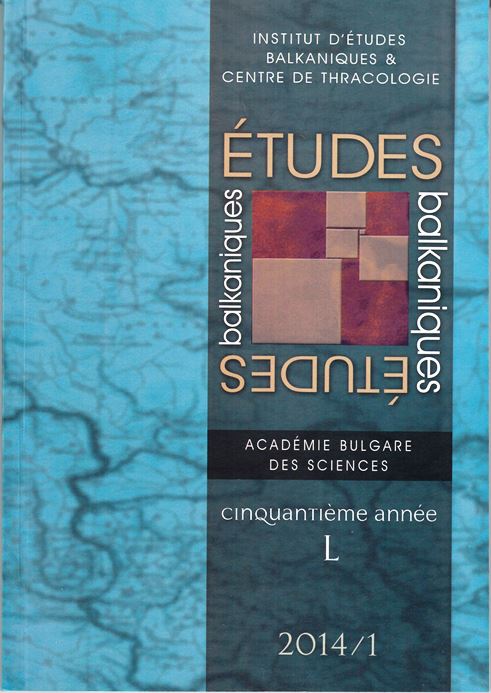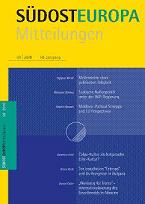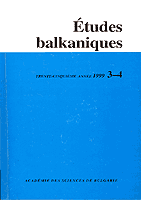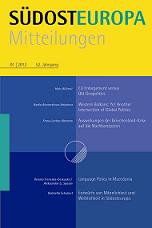











A. Duncker: Menschenrechtsorganisationen in der Türkei B. Küçük: Die Türkei und das andere Europa – Phantasmen der Identität im Beitrittsdiskurs C. J. Henrich / W. Gieler (Hrsg.): Türkisches Europa – Europäische Türkei S. Verney / K. Ifantis (Eds.): Turkey’s Road to European Union Membership H. Kramer / M. Reinkowski: Die Türkei und Europa R. Detrez / B. Segaert (Eds.): Europe and the Historical Legacies in the Balkans A. Lauhus (Hrsg.): Bulgarien zwischen Byzanz und dem Westen W. Gesemann / R. Ivanova-Kiefer /R. Zlatanova (Hrsg.): Bulgarien-Jahrbuch 2008 T. M. Bohn / D. Neutatz (Hrsg.): Studienhandbuch Östliches Europa – Band 2: Geschichte des Russischen Reiches und der Sowjetunion U. Krüger: Die gereizte Großmacht – Russlands Anspruch auf Weltgeltung N. Gallina: Political Elites in East Central Europe K. Kálal: Die Unterdrückung der Slowaken durch die Magyaren J. Dieringer: Das politische System der Republik Ungarn I. T. Berend: History in My Life – A Memoir of Three Eras A. Harre: Wege in die Moderne – Entwicklungsstrategien rumänischer Ökonomen im 19. und 20. Jahrhundert K. Roth / U. Brunnbauer (Eds.): Region, Regional Identity and Regionalism in Southeastern Europe (Part 1) W. Heller / J. Becker / B. Belina / W. Lindner (Hrsg.): Ethnizität in derGlobalisierung K. Simhandl: Der Diskurs der EU-Institutionen über die Kategorien „Zigeuner“ und „Roma“ T. Kahl / C. Lienau (Hrsg.): Christen und Muslime – Interethnische Koexistenz in südosteuropäischen Peripheriegebieten H.-C. Maner: Multikonfessionalität und neue Staatlichkeit N. Wyrwoll (Hrsg.): Orthodoxia 2009-2010
More...
Keywords: Fénelon; Jeanne-Marie Leprince de Beaumont; Bernardin de Saint-Pierre; Madame de Sévigné; Madame de Staël; Chateaubriand; Charles Nodier; Lamartine;
More...
Internationale Griechenland-Konferenz in Berlin Griechenland in der Schulden- und Staatskrise? – Ursachen, Folgen und Auswege Veranstalter: Südosteuropa-Gesellschaft (SOG) Berlin, 29. / 30. November 2011 Bericht von Oliver Schwarz, Duisburg Internationale Tagung in München Politische Kultur und Kultur der politischen Eliten im östlichen Europa Veranstalter: Institut für Volkskunde/Europäische Ethnologie der Ludwig-Maximilians-Universität München / J. G. Herder-Forschungsrat / Interfakultäres Institut für Ost- und Ostmitteleuropa der Universität Fribourg, Schweiz München, 10.-13. November 2011 Bericht von Sandra Szczesniak und David Wenig, München Graduiertenkolleg „Kulturelle Orientierungen und gesellschaftliche Ordnungsstrukturen in Südosteuropa“ Vierte Studienwoche des DFG-Graduiertenkollegs 1412 in Sofia, Bulgarien Veranstalter: DFG-Graduiertenkolleg 1412 “Kulturelle Orientierungen und gesellschaftliche Ordnungsstrukturen in Südosteuropa” der Friedrich-Schiller-Universität Jena und der Universität Erfurt Sofia, 26. September bis 2. Oktober 2011 Bericht von Hanns Schneider und Martin Jung, Jena
More...
Keywords: Balkan perspectives on Europe; Balkanism; Orientalism; Occidentalism; Western Europe; Western discourse about the Balkans
The article seeks to revise the current mainstream interpretation of the relations between the Balkans and the West as it has emerged from the mirror reading of the Balkanism paradigm. It interrogates the grounds for interpreting the Western discourse about the Balkans in terms of Said's Orientalism and the Balkan visions of Europe in terms of the hegemonic Western discourse.
More...